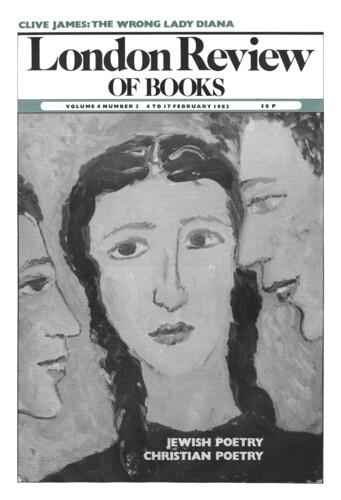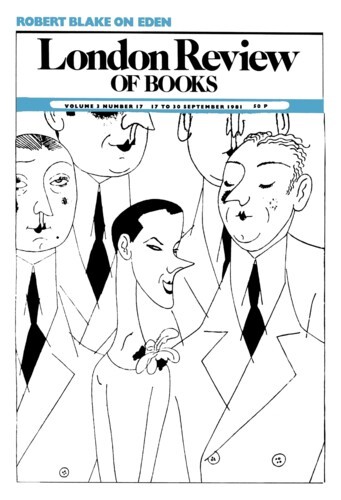Mole
Salman Rushdie, 4 February 1982
Until recently, the only Saki story I had ever read was ‘Filboid Studge, the Story of a Mouse that Helped’. This is the one about the artist Mark Spayley who is wooing the daughter of Duncan Dullamy, ‘the great company inflator’, whose new breakfast food Pipenta ‘could scarcely be called a drug on the market; people bought drugs, but no one bought Pipenta.’ Spayley, the mouse of the title, offers the great man his help, renames the product Filboid Studge and devises an advertising poster in which the Damned in Hell are tormented by young dandies who hold bowls of Filboid Studge just beyond the lost souls’ reach. ‘A single grim statement ran in bold letters along its base: “They cannot buy it now.” ’ The product becomes a success, and the industrialist refuses Spayley his daughter’s hand: after all, Spayley is poor and Leonore is an heiress …




